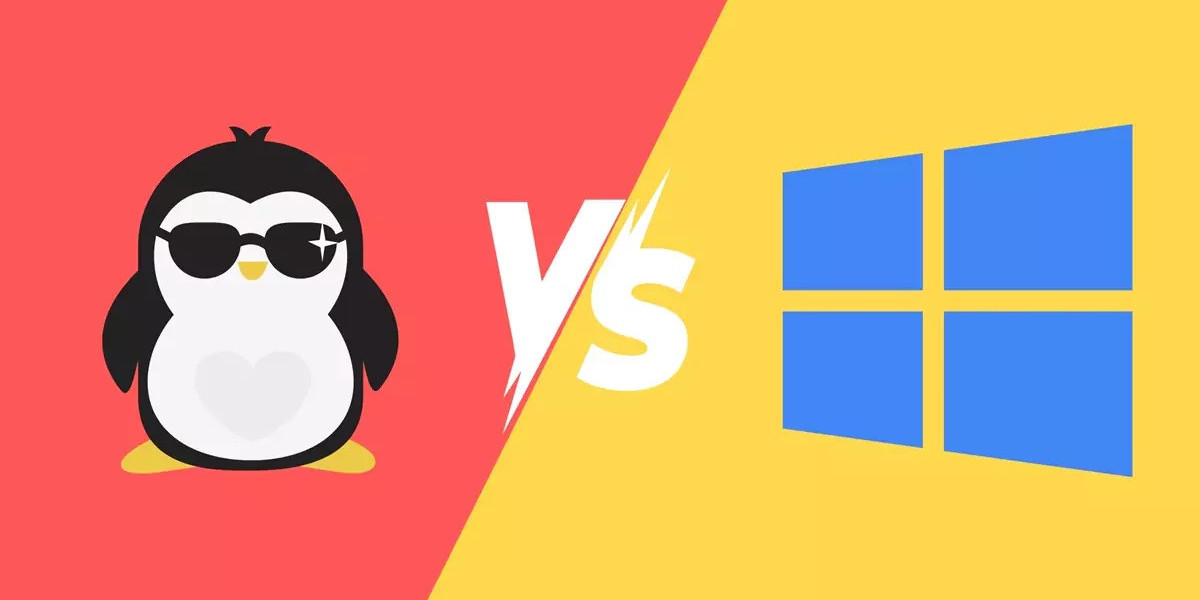The debate between Linux and Windows is a classic one in the tech world, each offering distinct benefits and drawbacks. Whether you're a developer, gamer, or casual user, understanding the core differences between these two operating systems can help you make the right choice for your needs. Here’s a breakdown of how Linux and Windows compare across various aspects: customization, security, software support, performance, gaming, and cost.
1. Customization
Linux is renowned for its exceptional customization capabilities. As an open-source system, it allows users to modify and configure their environment extensively. With numerous distributions like Ubuntu, Fedora, and Arch, users can tailor their setup to their technical expertise and requirements, from a minimal desktop interface to a powerful server configuration.
Windows offers less flexibility in customization. As a proprietary system, it limits users’ ability to alter core features. While you can personalize the appearance and adjust some settings, it doesn’t match the level of control available in Linux. Nevertheless, Windows provides a consistent user experience across devices, which can be advantageous for users who prefer simplicity over deep customization.
2. Security
When it comes to security, Linux vs windows often leads the pack. Its open-source nature allows a global community of developers to review and improve its code, making it more secure. With a smaller market share, Linux is less frequently targeted by malware and viruses. Its strict permission-based systems also help limit the damage if malware does manage to infiltrate.
Windows, being the most widely used OS, is a more frequent target for cyberattacks. Despite significant improvements in security features like Windows Defender and regular updates, the large user base makes it more susceptible to malware and viruses. For those prioritizing security, particularly in server and sensitive data environments, Linux is generally seen as the more secure choice. However, security is also influenced by user behavior and the software used.
3. Software and Application Support
In the realm of software compatibility, Windows generally has the edge. Its dominant market position ensures extensive support for commercial software, including popular applications such as Adobe Creative Suite and a wide range of games.
Linux, while providing a robust selection of open-source alternatives (like GIMP for Photoshop and LibreOffice for Microsoft Office), can fall short when it comes to proprietary applications. Certain professional tools and games may require compatibility layers like Wine or emulators, which can sometimes be hit-or-miss.
For developers, however, Linux offers a powerful environment with native support for shell scripting, package management, and various programming languages. It’s also a popular choice for web development and server management. Yet, for users reliant on mainstream commercial software, Windows often proves to be the more practical choice.
4. Performance
Linux typically outperforms Windows in terms of speed and resource efficiency. Its open-source nature allows users to streamline the system, making it a great fit for older or less powerful hardware. Linux generally consumes fewer system resources, which can lead to better overall performance.
Windows, while more resource-intensive, provides a smoother experience for running popular software, multitasking, and gaming. Although Linux can be optimized for better performance, achieving this often requires a more advanced level of technical knowledge.
5. Gaming
For gaming enthusiasts, Windows is usually the preferred choice. Most games are developed with Windows in mind, and gaming platforms like Steam, Epic Games, and Xbox Game Pass offer extensive support for Windows.
Linux has made strides in gaming with tools like Steam Proton and Lutris, which help run some Windows games on Linux. However, compatibility and performance can be inconsistent. While Linux is improving in this area, Windows still holds a clear advantage for gamers.
6. Cost
Linux has a significant cost advantage as it is free to download and use. Most Linux distributions and many open-source applications come at no charge. In contrast, Windows generally requires a paid license, though it often comes pre-installed on new computers.
For businesses, particularly those managing large-scale server environments, the cost savings from using Linux can be substantial. The choice between Linux and Windows for cost-effectiveness often depends on the scope and scale of the project.
Conclusion
In the end, the choice between Linux and Windows depends on your specific needs and priorities. If you value customization, security, and cost-effectiveness, Linux might be the better fit. Conversely, if you prioritize gaming, software compatibility, and ease of use, Windows is likely the more practical option.



